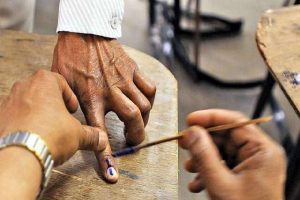Bowing to intense global pressure to rein in terror groups, the Pakistan government has issued an order to streamline a process for the implementation of sanctions against individuals and entities of all banned outfits as designated by the UN Security Council, the Foreign Office announced.
The UN Security Council (Freezing and Seizure) Order, 2019, has been issued in accordance with the provisions of Pakistan’s UN Security Council (UNSC) Act, 1948.
Advertisement
Interpreting the order, Pakistan Foreign Office spokesman Mohammad Faisal said it means that the government has taken over the control of all proscribed outfits operating in the country.
“(From now onwards), all kinds of assets and properties of all (banned) organisations will be in the government’s control,” the spokesperson told Dawn news.
He added that the government will also seize the charity wings and ambulances of such outfits.
“The objective of the (order) is to streamline the procedure for implementation of Security Council Sanctions against designated individuals and entities,” Faisal said.
Also on Monday, a high-level meeting was held at the Interior Ministry to discuss the implementation of the National Action Plan (NAP).
The Ministry has directed all provincial governments to “speed up” action against banned organisations.
The developments come a day after reports emerged of a decisive crackdown to be imminently launched by the government against extremist and militant organisations in the country, Dawn News said.
Pakistan Information Minister Fawad Chaudhry said the government had taken a firm decision that there would be stern action against all militant groups. But he refused to give any timeline for the operation against militant groups.
Earlier, reports said that Pakistan government had taken over the administrative control of the headquarters of Jaish-e-Mohammed (JeM), the terror outfit which claimed responsibility for the Pulwama attack that killed over 44 CRPF soldiers in Jammu and Kashmir.
Read | Pak govt bows to global pressure over Pulwama, takes control of JeM headquarters
The move came a day after the UN Security Council comprising 15 nations, including Pakistan’s key ally China, named JeM in a statement condemning in the “strongest terms” the “heinous and cowardly” terror attack executed by Pakistan-based JeM in Pulwama and stressed on the need to hold organisers and financiers of such “reprehensible acts” accountable and bring them to justice.
Earlier on February 21, Pakistan had also banned 2008 Mumbai terror attack mastermind Hafiz Saeed’s terror outfit Jamaat-ud-Dawa (JuD) and its front Falah-e-Insaniat Foundation (FIF).
Read | Under pressure to rein in terror after Pulwama, Pakistan bans Mumbai attack plotter Hafiz Saeed’s JuD
Earlier, the two terror outfits were kept on the watch-list of Pakistan’s Interior Ministry.
The JuD is the front organisation for the Lashkar-e-Taiba or LeT, which is responsible for carrying out the Mumbai terror attack that killed 166 people. It has been declared as a foreign terrorist organisation by the US in June 2014.
After the Pulwama attack, New Delhi reached out to the international community, most of which condemned the terror strike, to isolate Pakistan and to highlight the role of the neighbouring country in using terrorism as an instrument of state policy.
In the wake of the Pulwama terror attack, tensions escalated between India and Pakistan.
India carried out “non-military pre-emptive” airstrikes targeting the JeM training camp in Balakot in Pakistan’s restive Khyber Pakhtunkhwa province, about 80-km from the Line of Control (LoC) early on February 26.
Following skirmishes between India and Pakistan, the US, the UK and France moved a fresh proposal in the UN Security Council to designate Pakistan-based terror group JeM’s chief Masood Azhar as a global terrorist, a listing that will subject him to global travel ban, asset freeze and arms embargo.
The proposal was moved on February 27 by the three permanent veto-wielding members of the 15-nation Security Council.
It is the fourth such bid at the UN in the last 10 years to list Azhar as a global terrorist.











